News archive
NISAN staff have achieved a number of accolades since 2014.
2022
Valery Feigin wins Liley Medal
On November 9, ten medals and awards were presented by Royal Society Te Apārangi and the Health Research Council of New Zealand to recognise researchers in New Zealand who have achieved excellence in scholarship, innovation or who have made a significant contribution to Aotearoa through their research and career. Valery Feigin was awarded the HRC Liley Medal for published research that makes a significant contribution to health and medical sciences.
More details (Royal Society website)
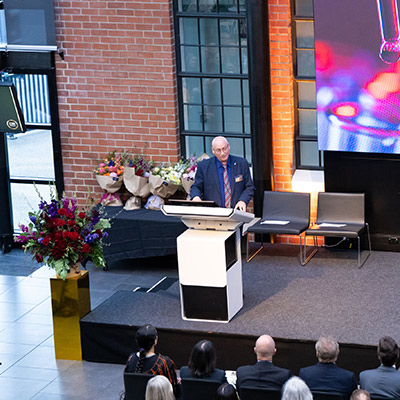
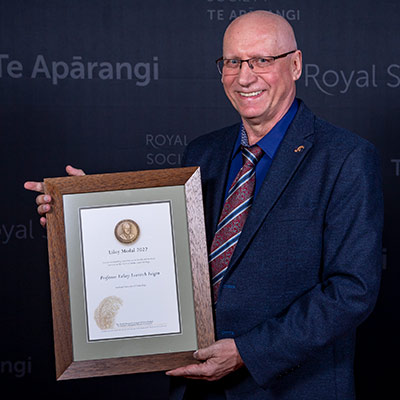
Best research paper award
Barker-Collo, S., Theadom, A., Jones, K., Starkey, N., Fernando, K., Kahan, M., ... & Feigin, V. (2021). Three methods for examining trajectories in neuropsychological performance across the first 4 years after mild Traumatic Brain Injury. Brain Impairment, 22(1), 20-33 has been awarded the 2022 Douglas and Tate prize for the Best Research paper published in Brain Impairment in the year 2021.
WHO Innovation Challenge 2022
Valery Feigin was one of the 29 winners of the WHO (World Health Organization) Innovation Challenge for the work entitled “Digital solutions for primary stroke and CVD prevention”. This work was selected from over 400 applications entered to the first WHO Western Pacific Innovation Challenge. It reflects his work on the Stroke Riskometer app for lay people and the PreventS-MD webapp for health professionals that are being offered for implementation across the globe.
Stroke Awareness month
On 16 March 2022, Stroke Central New Zealand hosted a discussion with Dr Ashley Bloomfield (Director-General of Health) and Professor Valery Feigin about the key issues and strategies for stroke prevention in Aotearoa.
2021
Landmark publication 2021
Valery Feigin co-led a landmark publication on primary stroke prevention. It is the first review of primary stroke prevention strategies across the globe that provides actionable plans and strategies and monitoring tools for all major stroke stakeholders, including health care policy makers, to radically reduce stroke burden across countries of all levels of economic development.
It is also the first paper that provides estimates of the global economic burden of stroke. This paper describes the PreventS and Stroke Riskometer apps as the key tools for individual stroke prevention, along with a detailed action plan for reducing stroke incidence and mortality across the globe.
The Lancet Public Health,
Published Online October 28, 2021.
World Health Organization Technical Advisory Group
In 2021, Valery Feigin was invited to become a member of the World Health Organization Technical Advisory Group on NCD-related research and innovation.
2020
Valery Feigin appointed Fellow of the Royal Society of New Zealand
Valery Feigin became a Fellow of the Royal Society of New Zealand in 2020. He and Tatiana are pictured here, with his certificate (13 February 2020)
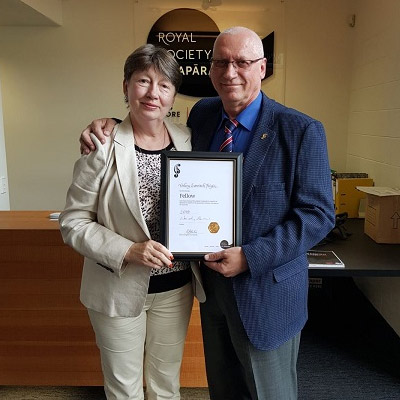
2020 Paul Dudley White Award
In February 2020, Ann George was selected as a 2020 Paul Dudley White International Scholar at the Epidemiology and Prevention/Lifestyle and Cardiometabolic Health 2020 Scientific Sessions Conference, held in Phoenix, Arizona, March 3-6 2020. This award recognises authors that contributed to the highest ranked accepted abstract from each country.
Shwetha A. George, Rita Krishnamurthi, Suzanne Barker-Collo & Valery Feigin: Health beliefs shaped by experiences of socioeconomic deprivation and psychosocial distress is critical to maintaining lifestyle choices for reducing stroke risk.
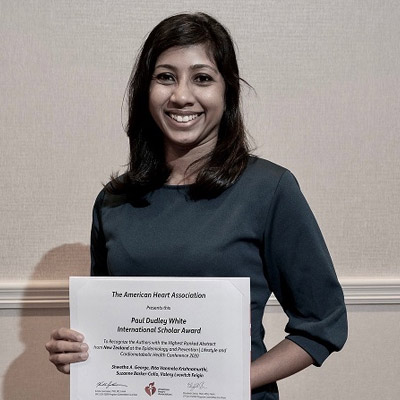
2019
AUT Research Excellence Awards
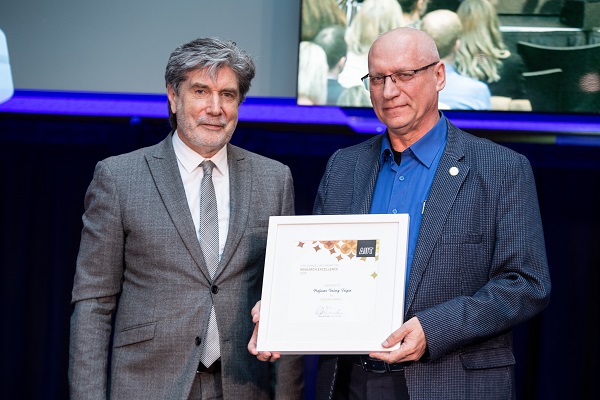
In October, Valery Feigin won the 2019 AUT Research Excellence Award in the category “Research Impact”.
Best poster award
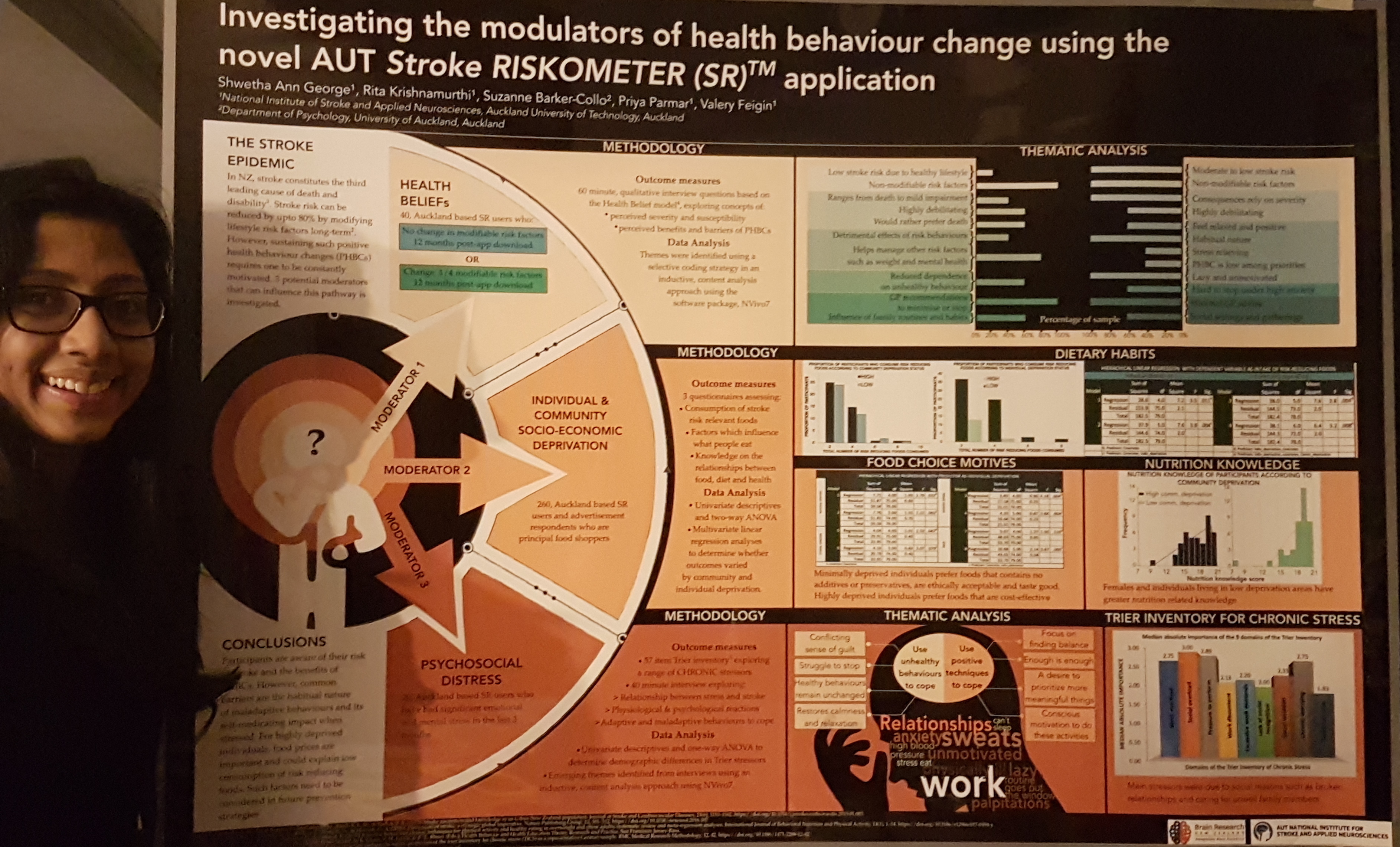
Ann George (PhD student) won the Best Poster Award at the Australasian Society of Lifestyle Medicine Conference, June 2019.
Women in Neuroscience
Susan Mahon was invited by the Neurolgical Foundation to speak on "Women in neuroscience", on International Women's Day 2019. See: https://www.youtube.com/watch?v=Sa7Lq4CIiFs&t=637s
2018
Brain Research New Zealand Annual Report 2018
The BRNZ 2018 annual report contains some interesting interviews with Rita Krishnamurthi and Valery Feigin.
Rutherford Discovery Fellowship for Alice Theadom
In October 2018, Associate Professor Alice Theadom was awarded a Rutherford Discovery Fellowship, for research entitled: Developing a biopsychosocial model of mild traumatic brain injury. Royal Society Te Apārangi manages the fellowships programme on behalf of government. For more information, see: https://royalsociety.org.nz/news/2018-rutherford-discovery-fellowships-to-accelerate-research-careers-announced
Graduation 2018
In August 2018, 3 NISAN students (Bronwyn, Sue and Halina) graduated.
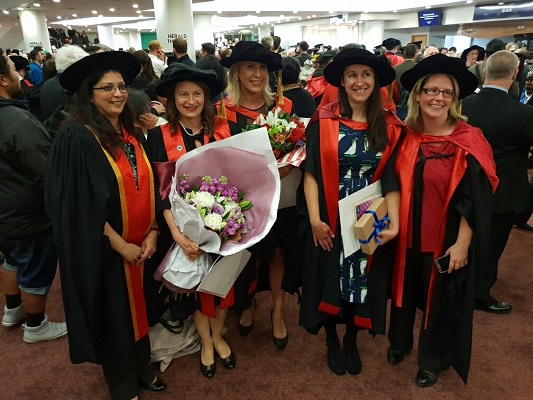
From left to right, Rita Krishnmaurthi, Bronwyn Tunnage, Susan Mahon, Halina Kaliga, Alice Theadom
Prizes and Awards
Valery Feigin wins SSA award - 2018
In August 2018, Valery Feigin received the 2018 Stroke Society of Australasia SSA Excellence in Stroke Award, in recognition of his contribution to the field of stroke.
Valery Feigin wins Royal Society of New Zealand MacDiarmid Award - 2014
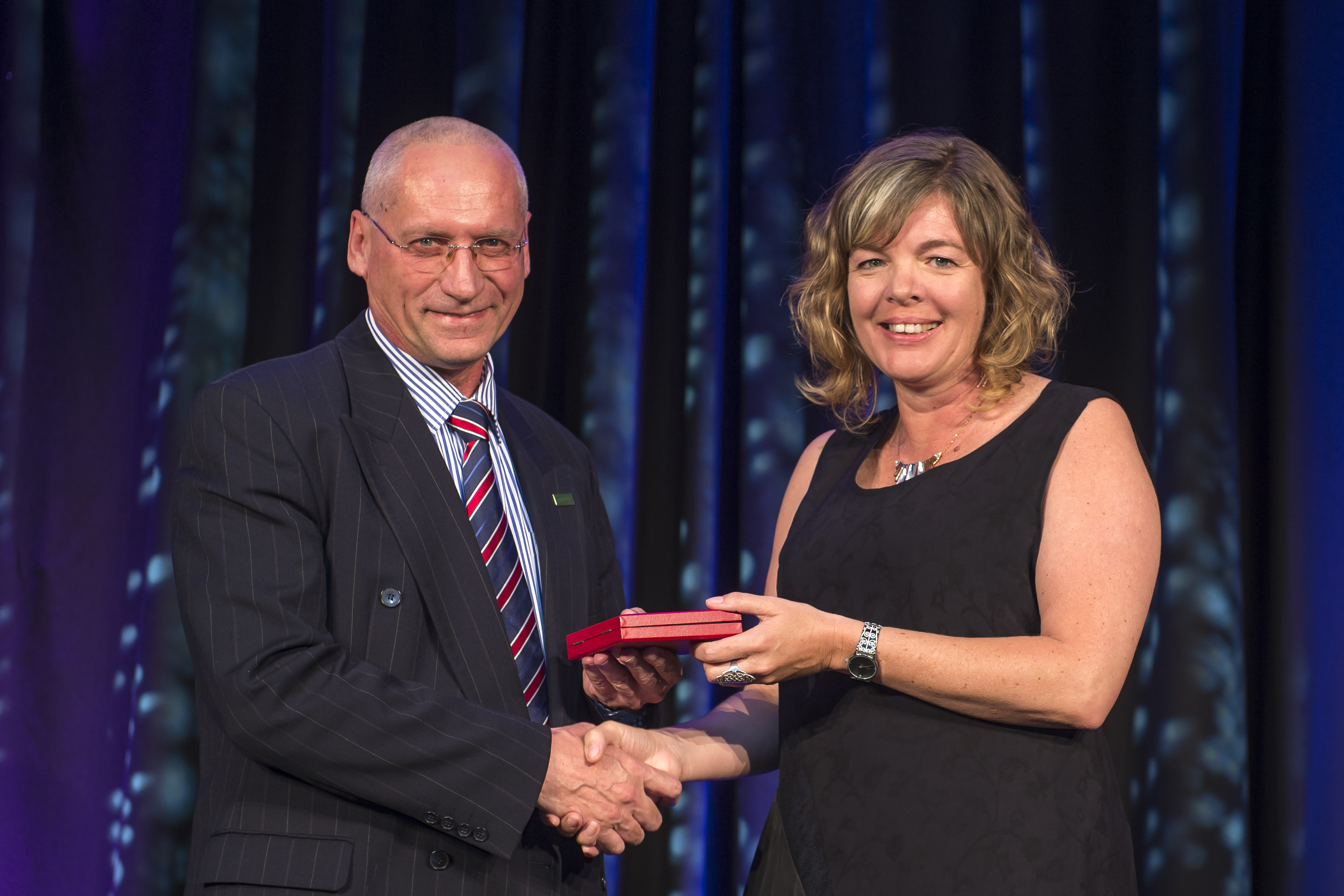
Professor Valery Feigin was awarded the MacDiarmid Medal for his research into understanding stroke epidemiology worldwide and the development of a mobile app that can help people assess their stroke risk.
Image courtesy of the Royal Society of New Zealand.
Find out more
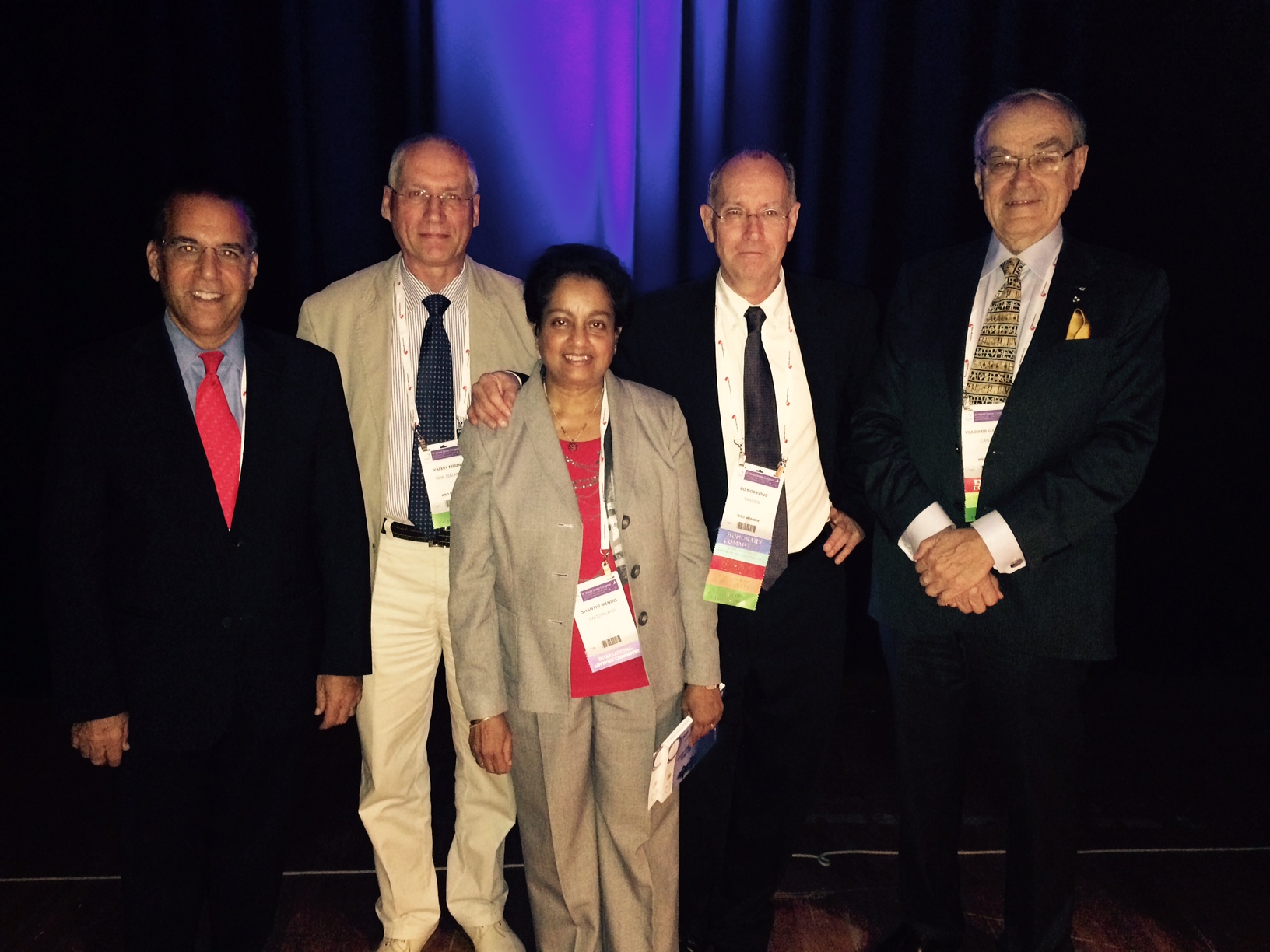
Valery Feigin wins WSO President's award - 2014
NZ Herald - Prof. Valery Feigin received the prestigious World Stroke Organization President's Award for Contributions to Clinical Stroke Research at the 9th World Stroke Congress, October 22-25, 2014, in Istanbul, Turkey. The international award was in recognition of his contribution to stroke research.
Photo: Prof. Ralph Sacco, Prof. Valery Feigin, Dr Shanthi Mendi, Prof. Stephen Davis, Prof. Vladimir Hachinski. Image courtesy of the World Stroke Organization.